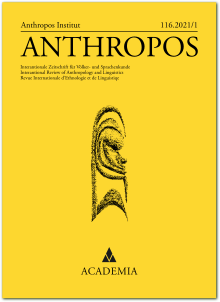N. M. Sajjadul Hoque, Muhammad Zakaria, Farzana Karim: Reproductive Health Knowledge, Attitude and Practice among Adolescent Girls in Urban and Rural Areas of Bangladesh. An Anthropological Study
Abstract
This study aims at assessing the level of knowledge, attitudes, and practices (KAP) concerning reproductive health (RH) among adolescent college-going girls in the urban and rural areas of Chittagong District, Bangladesh. A college-based cross-sectional study was conducted among college-going girls (N = 792) of four colleges attending Higher Secondary Certificate (HSC) classes (eleven/twelve classes) in Chittagong District. Data were collected using a structured and self-administered questionnaire. Chi-square (χ2) and independent-samples t-test were conducted to make the comparison between urban and rural participants. Data were analyzed using IBM SPSS version 24.0. The authors’ interpretation of the findings was also informed by anthropological as well as qualitative considerations. Mothers were reported to be the key informants of reproductive health for the adolescent girls of both urban and rural areas. Besides, urban respondents were more likely than rural respondents (p < .001) to feel comfortable during the discussion on RH with mother/sister/relative; to communicate frequently with their mothers; to discuss RH issues regularly; to have prior knowledge on menstruation Moreover, this study also found significant differences (p < .05) regarding most of the items addressing RH knowledge, attitude, and practice between adolescent girls in urban and rural areas of Bangladesh due to the existing socio-cultural disparities between the areas of residence.
[reproductive health, knowledge, attitude, practice, adolescent girls, urban-rural]
